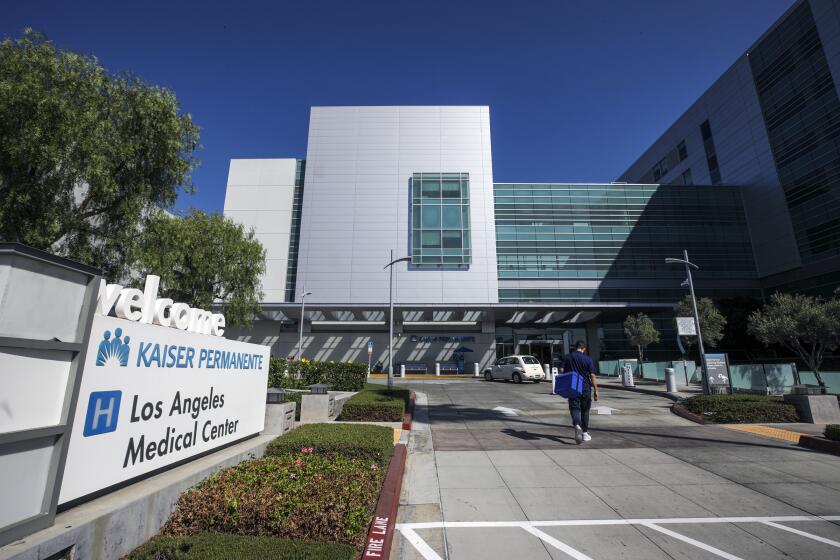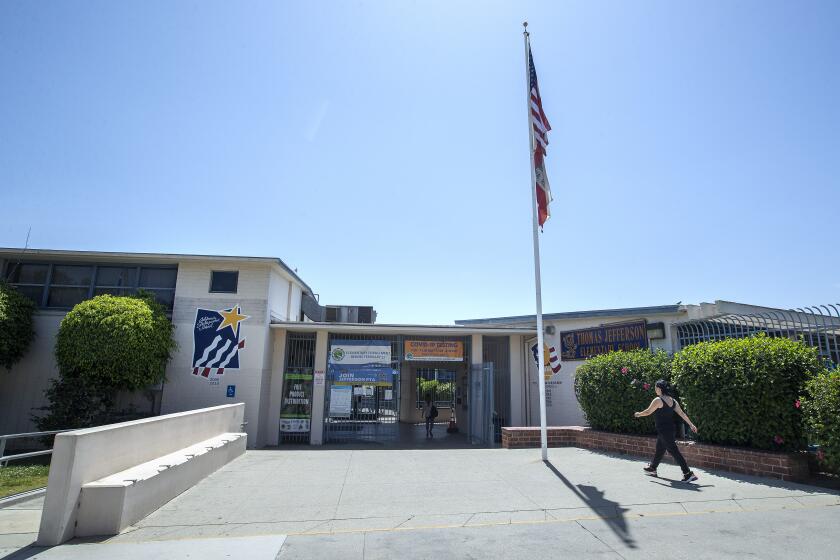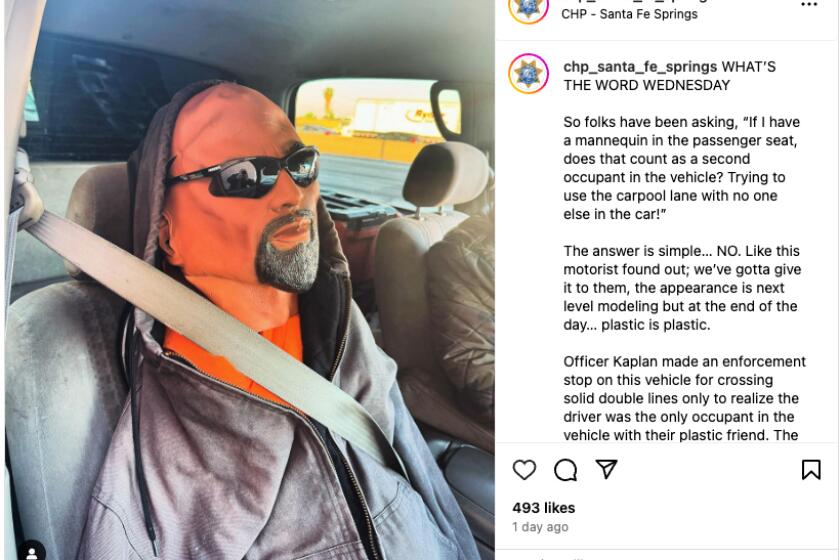Council to rush a vote on medical pot law
With its moratorium on new medical marijuana dispensaries declared unlawful, the Los Angeles City Council is now poised to act quickly on a strict ordinance that it has struggled with fitfully for more than two years.
On Tuesday, the city attorney’s office delivered a draft that some members want the council to take up within a week. The sudden acceleration stems from a Superior Court ruling Monday that left the city unable to enforce its ban and derailed its four-month-old drive to shut down new dispensaries.
“We painted ourselves into a very tough position and now we act,” said Councilman Ed Reyes, who has overseen the drawn-out effort to write an ordinance. “If we can do this Tuesday, I think we’ll be OK.”
The city’s failure to pass an ordinance or enforce its moratorium allowed the number of dispensaries to explode. There are now hundreds in the city, by most estimates, and new ones continue to open almost weekly. Neighborhood activists have angrily complained that the council has lost control.
The proposed ordinance contains provisions that could make it one of the most restrictive in the state.
Under the latest proposal, most dispensaries would be required to close immediately and could not apply to reopen for six months. The 186 dispensaries that registered with the city when it passed its moratorium in 2007 would be allowed to remain open for six months, but then would have to meet the ordinance’s requirements.
The ordinance could effectively outlaw most dispensaries in the city by prohibiting sales of medical marijuana. Both City Atty. Carmen Trutanich and Los Angeles County Dist. Atty. Steve Cooley maintain that state law does not allow over-the-counter sales, though they say collectives owned by the members are allowed to recoup their expenses. Dispensary operators say the sales, usually in 1/8 -ounce increments, are meant to cover their operating costs.
Council members have become increasingly frustrated with dispensaries flagrantly violating the ban and the state’s requirement that they operate as collectively-run nonprofits.
Some of the council members most involved in the issue have begun to press for the tough measure.
“We are going to ban sales,” said Councilman Dennis Zine, who said he has discussed the issue with colleagues. “The profit margin is what’s gotten them going. They’re not in there to help people, they’re in there to make money.”
Councilman Jose Huizar, however, said he was studying all the relevant court cases to try to decide whether to ban sales, a complicated and contentious issue that has contributed to the council’s extended deliberations.
No other city or county appears to have tried to directly restrict sales, although some require collectives to maintain detailed records to prove their nonprofit status.
Yamileth Bolanos, who runs Pure Life Alternative Wellness Center and is president of the Greater Los Angeles Collective Alliance, said dispensary operators were stunned at the sudden turn of events.
“I understand that they are going to try to rush [the ordinance] through, but it doesn’t work for us. Essentially, it’s just going to wipe us out,” said Bolanos, whose group of 54 dispensaries has worked with the council for many months to try to reach a compromise. “This is a very unfair thing to us.”
The ordinance requires collectives to keep records on members and suppliers and to make them available to police, which operators fear could leave them vulnerable to federal prosecution even though the Justice Department on Monday formally told its prosecutors not to pursue medical marijuana users and dispensaries that follow state law.
The draft ordinance also adds a provision that requires collectives to notify council members and neighborhood councils of their plans to open, and another that bars anyone who was convicted of a felony within the previous 10 years or who is on parole or probation from managing a collective.
In addition, the ordinance would limit the number of dispensaries by requiring them to be at least 1,000 feet from schools, parks, libraries, religious institutions, child care facilities, youth centers, hospitals, medical facilities, substance abuse rehabilitation centers and other collectives.
The ordinance also would restrict the dispensaries’ operations. They could be open only between 10 a.m. and 8 p.m. They could have no more than 5 pounds of marijuana or 100 plants on hand, and marijuana could not be consumed on site. They also would not be allowed to sell or manufacture edible marijuana products.
--
More to Read
Start your day right
Sign up for Essential California for news, features and recommendations from the L.A. Times and beyond in your inbox six days a week.
You may occasionally receive promotional content from the Los Angeles Times.






